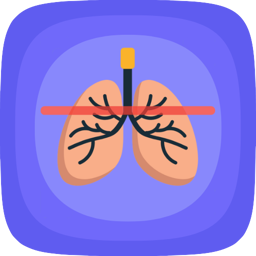Tips to Boost Your Portfolio Score
It’s tempting to look at the scoring criteria and think you need to get 45/45. Truth is, if you haven’t already held a national leadership role or done a PhD, then you need to accept that you’ve lost these points and move on to ensure you don’t neglect the other parts of your application. If you’re short on time, you need to focus on the things you can actually do to affect your score:
- Organise a taster week (or an extra taster week!) ✅
- Complete a quick and easy radiology audit ✅
- Teach some medical students and get some feedback ✅
- Do something that shows commitment to radiology ✅
Remember, your portfolio only makes up a third of your score when you’re ranked. Once you’ve maximised your score in the time frame you’ve got, focus your attention on the MSRA and interview, rather than try to get that 1 extra point that might take months of work.
Organising a Taster Week
Doing a taster week is an absolute must when applying to radiology. You’ve got to question (and will be questioned) anyone who wants to pursue a career in a speciality when they’ve had no experience with it. If you don't have any contacts in your hospital’s friendly radiology department, try emailing your post-graduate department and asking for the email of the radiology Trust Specialty Training Lead (TSTL), or the clinical director (CD). Ping an email off to them explaining how you’ve wanted to be a radiologist since you were a small child, and they should set the wheels in motion. Your request is unlikely to be the first they have received as radiology departments are familiar with organising taster weeks, so you might be surprised how formal their process is (I had a full 9-5 structured timetable emailed back to me!). Try to do 5 days if you can; although the criteria says 'more than 3 days', there’s so much to see and the days go very fast, so you might as well spend as much time in the department as possible. Once you’ve completed the week, you NEED to do 2 things:
- Get a signed letter on headed paper from the TSTL or CD. This should state what you did and how long you were there. This will be the only evidence you have that you were there, and the only evidence that will be acceptable when you apply to radiology.
- Reflect. Annoying, but if you don’t reflect on what you’ve seen and learnt, you’ll forget what you’ve done. If asked at the interview to 'tell them about your taster week', having your reflection to hand will be the difference between a boring, vague response and an engaging answer, especially if your interview is weeks, months or even years later.
If you’ve already done a taster week or rotated to a different hospital, great, do another one! Not only will this will give you max points in this section of your portfolio, but comparing different radiology departments and your reflections on this at your interview will make them weak at the knees.
Audits & QI Projects
The RCR publish extremely useful audit templates for you to use in your next project. These are amazing resources, as they lay out exactly how to conduct the audit, how long it will take you and the evidence behind the standards. You can essentially copy and paste this information and send it to your audit department to get this registered. If you can close the loop and demonstrate a change in practice you'll be on for 5 out of 7 points available in Domain 5. If you've got time, you could also get 3 out of the available 5 points in Domain 6 by presenting your project as a poster at a national conference.
Teaching Programme Tips
Scoring full points in Domains 3 and 4 is undoubtedly difficult without some serious effort to get a recognised teaching qualification. However, getting 2 points in Domain 3 is simple enough. If you are ward-based, you probably have medical students rotating through the ward, so set up a teaching programme with them. Data interpretation has a pretty low barrier to entry, perhaps going through the basics of chest x-ray or ECG interpretation. If you are based in the emergency department, do some bedside teaching with students and teach them about history taking or clinical examination. The key is to make it a ‘programme’ rather than a single session, so schedule a few regular dates and ask your students what they would like to learn about the following week. If you keep it up for a full 3 months, you'll get 4 out of 5 points! After you’ve finished each session, gather the emails of the students and send them a feedback form. Use an online form rather than paper forms, as it will automatically collate all your responses and you won’t lose them. Below is a link to a template form you can use to collect responses (just click duplicate at the top right).
Let your consultant know that you’re running a teaching programme so that they can give you a letter of recognition for your efforts, and you can use this when you upload evidence for your application; just make sure it's on headed paper.
Radiology Courses & Conferences
Although courses and conferences no longer score you points in the portfolio, these extra things you can do will give you lots to talk about at your interview. Again, I'm not affiliated with any of these, just went on some myself and found them useful!
References: - www.rcr.ac.uk. (n.d.). AuditLive | The Royal College of Radiologists. [online] Available at: https://www.rcr.ac.uk/clinical-radiology/audit-and-qi/auditlive.
GetIntoRadiology
Copyright © 2022 GetIntoRadiology.co.uk. All rights reserved.
